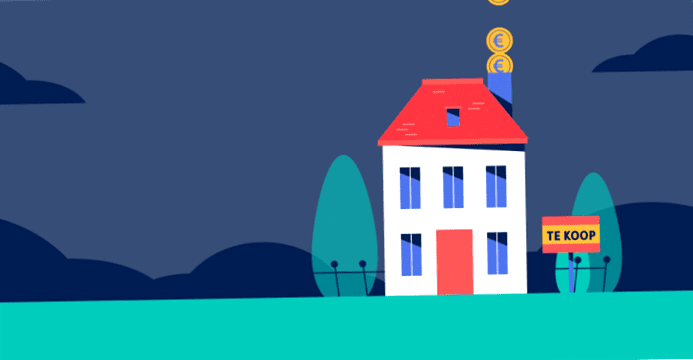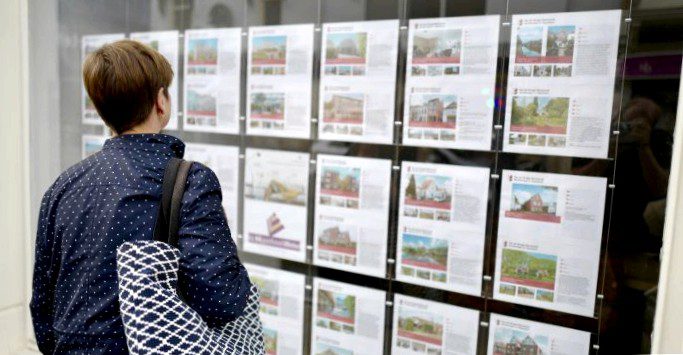
Like flying over: the view of the city and harbors from the 102nd floor of Hong Kong's tallest building is unparalleled. Just like the lunch that Stef Blok is served here. It is late 2016 when the minister – then Minister of Housing – raises a glass at cloud level in the luxurious Ritz Carlton Hotel with the envoys of a controversial Chinese billionaire family. Goal: boost the Dutch mortgage market with Chinese capital. The Dutch are not like Americans, is the minister's message. They always repay their debts. 'Even in the darkest crisis years, the Dutch continued to pay their mortgages and waited patiently for better times', Blok says in speeches during his trip.
That is what the directors of Sun Hung Kai, the company owned by the Kwok brothers, are interested in. The brothers own nearly seventeen billion dollars, according to business magazine Forbes, and are also owners of the skyscraper where Blok is speaking with the company. One of the brothers was sentenced to five years in prison for bribery in 2014. Their interest is serious. Even before Blok travels to Asia, the Kwoks set up an efficient tax structure to invest in the Dutch housing market.

One in five Dutch homebuyers take mortgage with shadow bank
Consumer association, mortgage advisors and AFM concerned
Earlier that day Blok had an appointment with Chow Tai Fook Enterprises, another very rich company from Hong Kong that invests in hotels, casinos and jewelry in gambler's paradise Macau. The goal of Blok's sales journey is simple: wealthy investors must be convinced to invest their money in the Dutch housing market. Which is'stronger and more flexible than ever, and the opportunities for private investors are greater than ever before', is in the interview notes from Blok's Asian tour that we obtained after appealing to the Government Information (Public Access) Act. His department even creates a special English-language website, investingindutchhousing.Namely, to lure investors to the Netherlands. At each talk, the minister hands out flyers.
''Welcome into the Dutch housing market'
While Blok in Hong Kong and Singapore praises the Dutch economy, at the same time many Dutch homeowners are still recovering from the financial crisis. The housing market has collapsed dramatically in this, with almost a third of households with a mortgage underwater. Tens of thousands of households cannot pay their mortgages.
According to Blok, this misery has a silver lining. 'Payment arrears are very low', he says during a speech. So, as Blok said to investors in London:'Put on your best suit and enjoy your red carpet welcome into the Dutch housing market!'
All financial institutions, from the International Monetary Fund to the European Central Bank, from the Dutch Bank to the Financial Markets Authority, were in agreement after the crisis: the Dutch mortgage debt is much too high. The oppressive debt burden ensured that the crisis in the Netherlands was much more intense and also lasted much longer than in the countries around us. Instead of consuming and thus boosting the economy, the Dutch had to rush to repay their sky-high debts. One measure was inevitable: the mortgage debt had to be drastically reduced.
But that didn't happen. On the contrary. For the past five years, the government has been doing everything it can to get more mortgages and money into the Dutch housing market – financed, if necessary, from gambling profits on Macau. And it worked. From Norwegian billionaires to U.S. investment bank Goldman Sachs, a London-based 'boutique investment firm' and foreign banks and pension funds, all flocked to the Netherlands to take advantage of rapidly rising house prices. Dutch pension funds and insurers also chose to put their huge financial reserves into bricks.
The rapid influx of this money propelled home prices even higher at an insane rate. And while housing in big cities is now unaffordable, new investors continue to stoke the overheated market. Total mortgage debt increased by 30 billion euros to 702 billion between 2014 and 2018.
New mortgage lenders
These investors do not invest through banks, but do so through specially set up mortgage companies. Through so-called'regie parties, With names like Mint, Tulip, Venn, bijBouwe, Vista and Colibri, they can sell mortgages that fit their own needs exactly. The mortgages are made to be easily packaged and traded on international markets, just as they were before the crisis. Meanwhile, almost one in five Dutch people take out their mortgage at this type of office. They already have a total of some forty billion in mortgages outstanding.
'They draw customers in with cheap interest rates, but if you need to change something you're screwed.'